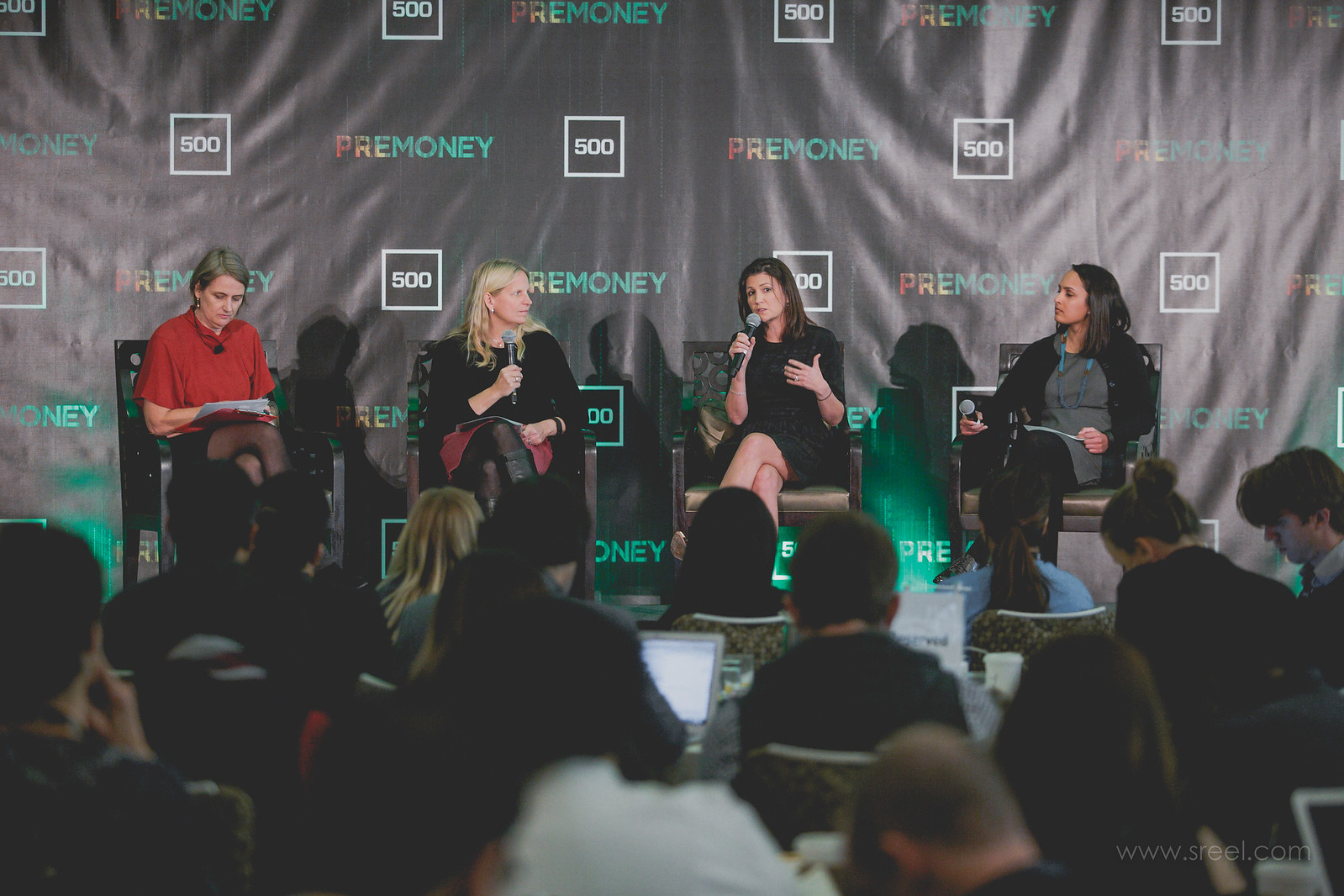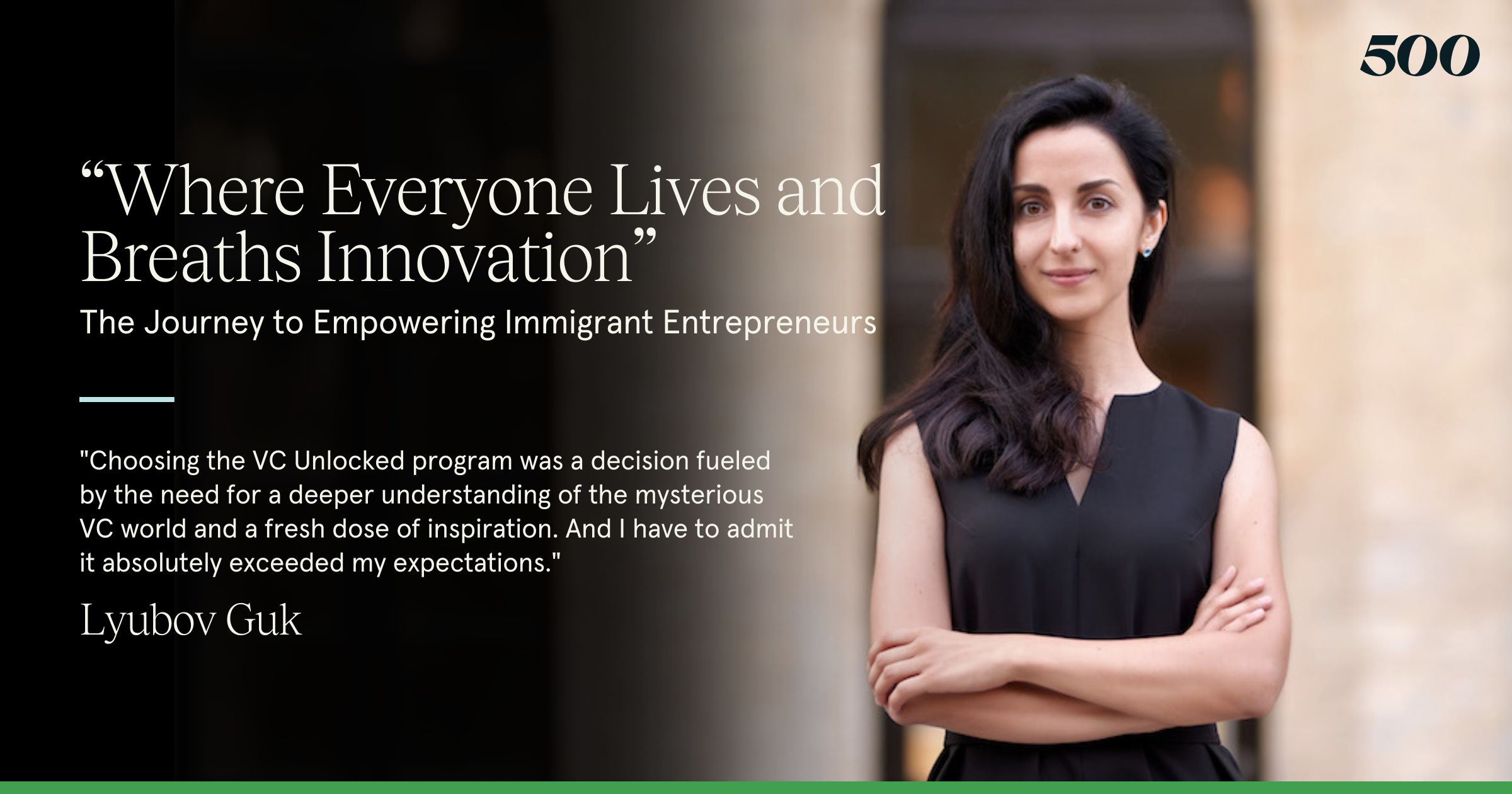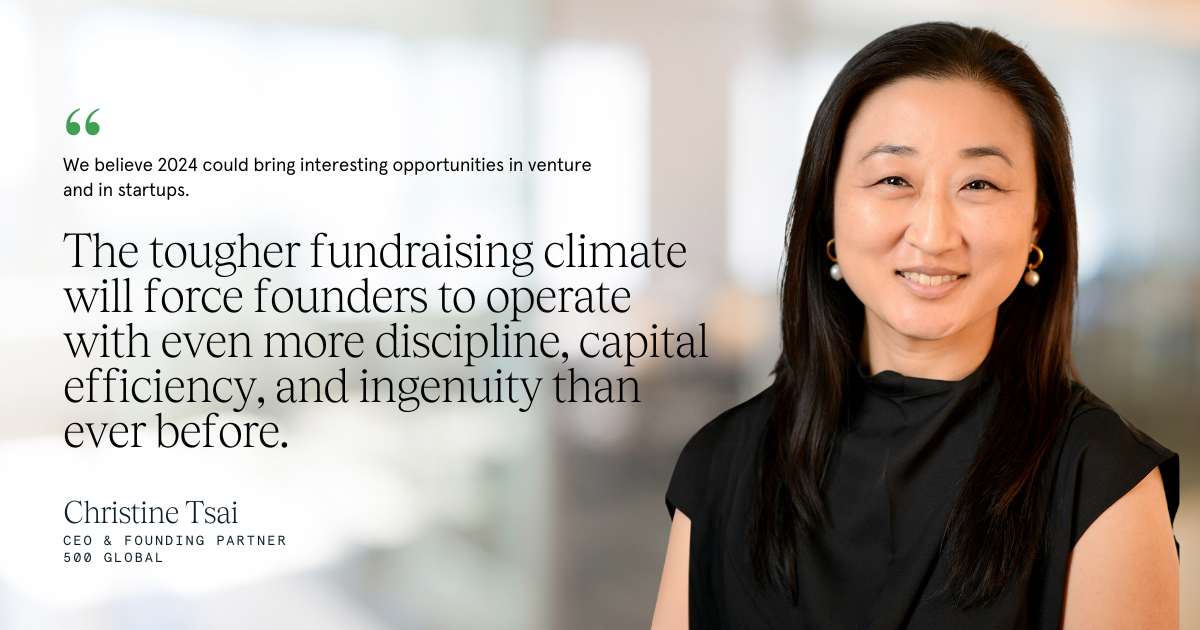At last week’s PreMoney conference, more than 500 investors and LPs packed into the InterContinental in San Francisco to learn about the latest trends in venture capital from some of the biggest names in the industry.
The goal behind PreMoney is to foster a community that shares resources and strategies for innovation in venture capital. This year’s event was no exception, with plenty of bold predictions and actionable insights.
If you missed the event (or just want to relive the smooth emceeing of 500 partner Arjun Arora), here’s our recap of an action-packed day and some of the key themes that were covered:
For the TL;DR crowd, you can also skip straight to the photos, videos, and speakers’ decks from this year’s conference.
2018 Predictions from Mark Suster, Aydin Senkut, and Rebecca Lynn
Mark Suster, managing partner of Upfront VC, kicked off the day with the opening keynote on the state of the VC industry. It was one of the most popular sessions of the day.
“Many people, myself included, predicted that winter was coming. So what happened to winter?” said Suster.
According to Upfront’s research, VCs made significantly fewer investments in 2016 and valuations were lower, yet the industry is still seeing huge financings and valuations.
As an explanation, Suster pointed to “global warming,” or the influx of new foreign capital from the likes of SoftBank’s $100B Vision Fund and Alibaba, as well as other factors like the rise of corporate VCs.

“I believe that overfunding and the new capital moving into this market that may not have the same price discipline or same objectives will likely depress returns overall in our industry,” said Suster.
“I suspect that the debate that we’ll be having between 2018 and 2022 is what negative impact did all this overcapitalization for our industry have.”

During the Midas Investor panel, Aydin Senkut of Felicis Ventures and Rebecca Lynn of Canvas Ventures riffed on some of the biggest tech trends affecting VC today.
The big predictions?
“I expect health to become a lot more important,” said Senkut. “It might take five [years], it might take 10…it’s always those unsexy areas, and if you’re willing to do the homework and spend the time and look closer, those gems will present themselves.”
“For us to be successful in health, all it takes is one or two companies, and I’m pretty sure we are going to get that,” said Senkut.
Lynn wasn’t so sure.
“I disagree 100% about health,” Lynn said. “Unless you figure out who pays for it, it’s really hard—mental health especially.”
Looking forward to 2018, she pointed to the importance of tapping into new talent hubs outside of Silicon Valley.
“It’s not just cost, it’s talent,” said Lynn, reserving a special shoutout to the University of Illinois and University of Waterloo.
“There’s amazing tech talent out there that don’t live here or didn’t go to school here,” she said. “That international front is incredibly important.”
Investing in Inclusion
Christine Tsai, 500 Startups’ CEO, set the tone for the day with her opening address.
“We shouldn’t be limiting the kinds of founders we invest in….we’re missing out on some amazing talent and opportunities for ourselves as investors by not prioritizing inclusion,” said Tsai.

More than 46% of the speakers at this year’s event were women or non-binary, an unheard of statistic in an industry known for all-male panels.
One panel, “Inclusive Investing: Real World Solutions,” addressed the issue of diversity in venture capital head on.
“If all we did was invest in people who look exactly like us, we would be in trouble as an industry. That’s part of the reason that we kind of are,” said Stephanie Palmeri of Uncork Capital.
“The average VC firm has about 17 employees. When you think about that, a lot of them don’t have HR, they don’t have someone who’s dedicated to those issues,” said Maryam Haque, VP of research and strategic engagement at the NVCA.
The panel offered some practical solutions, including formalizing childcare and anti-harassment policies, setting up support networks, bringing in women and underrepresented minorities into VC firms in entry level roles, and more.
During “Thinking Big Again,” Cyan Bannister of Founders Fund talked about the end of the “young Zuckerberg obsession.”
“I would like to end ageism in investing,” said Bannister, earning some of the biggest applause of the day.
“We have the 30 under 30, the 20 under 20, soon we’ll have the 10 under 10. Where’s the 60 over 60?” said Bannister.
Crypto, Blockchain, and ICOs
David Blumberg of Blumberg Capital moderated one of the most entertaining panels of the day, focused on “Cryptic Investing: Blockchain/Bitcoin.”
The conversation quickly turned to regulation in the crypto and ICO space.
“”[Regulators are] fairly constructive on this technology,” said Bart Stephens of Blockchain Capital. “Regulators have a dual mandate. One is to protect the consumers, the other is to be globally competitive. So if the US, for example, over-regulates this industry, it will move to Singapore,” he said.
“None of the usual suspects are long this stuff,” said Stephens. “This would be the first bubble in history that is totally retail-driven, and banks and institutions and financial firms essentially do not have a position.”

One of the most interesting points was the shifting generational trust in bitcoin and cryptocurrencies vis à vis traditional financial institutions.
“One in three millennials would rather own bitcoin than gold, stocks…it’s the emergence of a new asset class,” said Stephens, citing a survey from Blockchain Capital.
Learn more
Check out photos, videos, and speakers’ decks from this year’s conference.
Subscribe to our newsletter to find out about upcoming events, latest news, and more.
Interested in learning more about early stage investing? Check out VC Unlocked: Deal Camp at Berkeley, our crash course on the nuts and bolts of negotiating investment terms, sourcing deals, and all things early stage investing. Apply today to join our next cohort on February 26.
Note: 500 Startups events are operated by 500 Startups Incubator, L.L.C. and the funds advised by 500 Startups do not participate in any revenue generated by these activities. Such programs and services are provided for educational and informational purposes only and under no circumstances should any content provided as part of any such programs, services or events be construed as investment, legal, tax or accounting advice by 500 Startups Incubator, L.L.C. or any of its affiliates. Where indicated this post may include content or opinions from guest speakers and any views or opinions expressed in such posts are personal and do not represent those of 500 Startups or any of its staff or affiliates unless explicitly stated.




